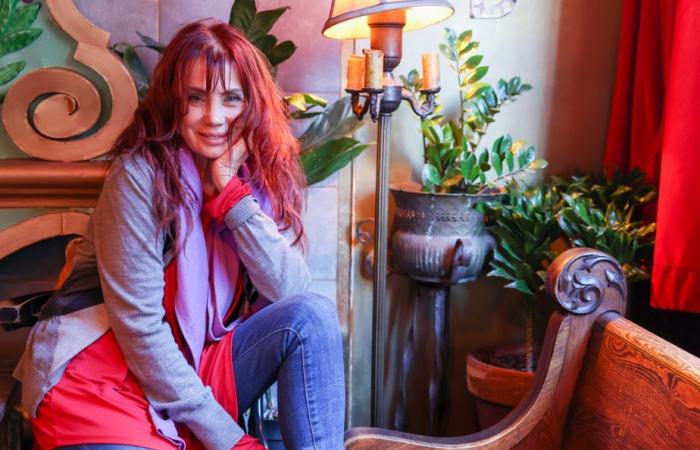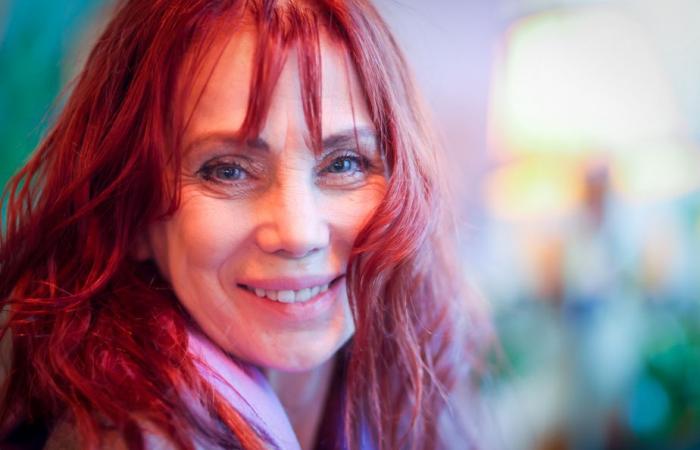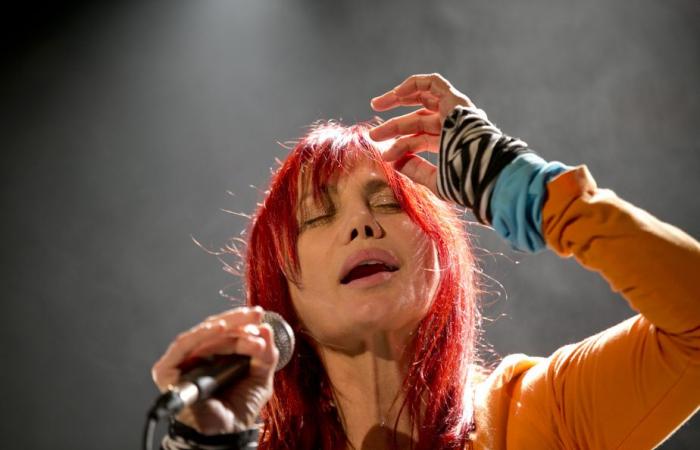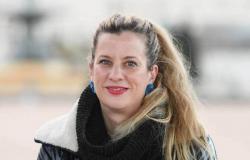Two years after the release of Cursed silencea book-disc where 14 languages resonate, including several indigenous idioms from the three Americas, Chloé Sainte-Marie continues her journey across our vast continent. Meet the woman who returns to the stage of the intimate Salle Claude-Léveillée at Place des Arts on Friday and Saturday.
Published at 11:00 a.m.
She has the soul of a poet and the determination of a long-distance runner. Chloé Sainte-Marie has been leading a quest like no other for 25 years: naming America in the language of the locals. She was already singing in Innu before the start of the new millennium, long before the idea of drawing inspiration from another’s culture became suspect. Such audacity would be difficult to imagine today.
Cursed silencea magnificent book-disc published in 2022, takes its exploration of the roots of this continent further. This desire to poetically tell the story that she affirmed with the taming of the Innu and their territory now extends to the three Americas. She and her collaborators sing in around ten languages, including Quechua, Guarani and Mayan, which are those of indigenous peoples of Peru, Brazil and Mexico.
Chloé Sainte-Marie first said that this crossing of the continent seemed to her the “natural continuation” of things. Then, she changes her mind. “What led me there was still Jean Morisset,” she explains, speaking of her late friend, who was a poet and geographer, and above all the inspiration for her vision of a mixed America, early detached from its European roots.
This album is a way of claiming my Creoleness. I am a snow Creole.
Chloe Sainte-Marie
The interpreter claims an impure language, not French or even Quebecois, but “Canadian”. “I speak crookedly, I speak like Kerouac,” she says, in a tone of the obvious. Chloé Sainte-Marie first seeks to highlight what roots her. Rather than looking at the world from west to east, that is to say from Quebec to Europe, in particular France, it now views it along a north-south axis.
Appropriation for better sharing
This extraordinary performer embraces the complexity of a colonizer-colonized identity, which she carries and transcends by opening her arms and offering her voice to the different peoples with whom we share this vast territory. “It is by appropriating the songs and dreams of the indigenous peoples who live around us that we will be able to take a step forward,” she believes.
She says “appropriate”, a hated expression, a gesture which has sent some artists to the stake of good intentions. She knows the weight of this word, she accepts it. However, we must also have the honesty to hear it as she pronounces it: the verb “appropriate” comes into her mouth and into her art with sincere curiosity and a desire to share.
PHOTO FRANÇOIS ROY, THE PRESS
The singer Chloé Sainte-Marie
And to those who might want to criticize her for bringing words and stories on stage that are not her own, Innu poet Joséphine Bacon has already replied that it was she who asked Chloé Sainte-Marie to sing her language. “Bibitte was like my adoptive mother, she taught me everything,” says the singer.
She met Joséphine Bacon (known as “Bibitte”) decades ago in the entourage of Gilles Carle, the eminent filmmaker whose life she shared until his death in 2009. “With her, I I walked, the territory,” she insists. That’s good, Chloé Sainte-Marie can’t sit still. Walking, according to her, imprints as much as it leaves imprints. “I learned through the soles of my feet more than through my head,” she says.
Speak out
Before becoming the voice of many poets, Chloé Sainte-Marie grew up in a large family in the Drummondville region which had the particularity of being of the Protestant faith. She often spoke of how difficult her rigorous religious education had been and how liberating her meeting with Gilles Carle had been. From her youth, she also remains marked by the beauty of religious songs and the charisma of certain pastors.
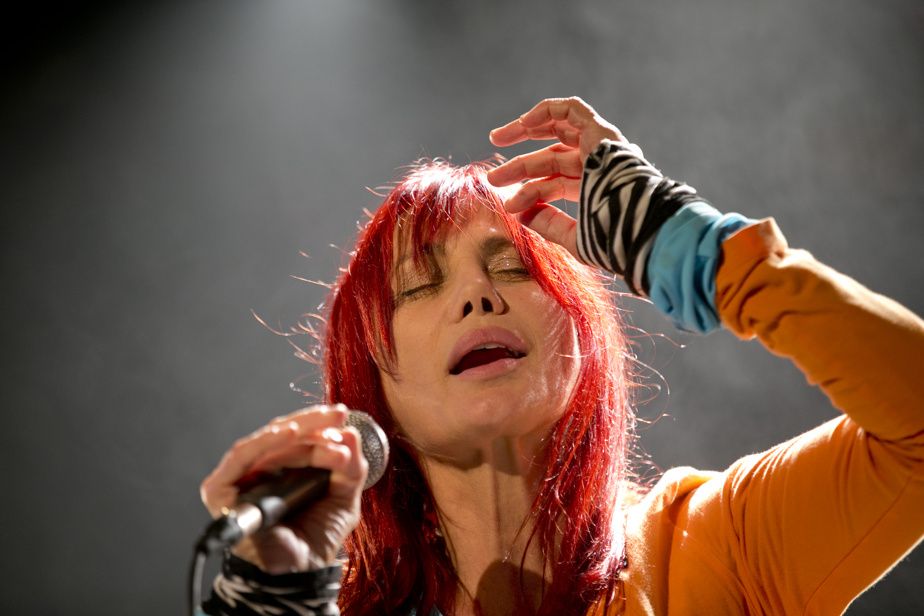
PHOTO DAVID BOILY, LA PRESSE ARCHIVES
Chloé Sainte-Marie on stage, in 2015
“Now it’s me who speaks,” she said proudly. You have to have seen her on stage to understand her very particular magnetism, mixing confidence and fragility. After a portion of the tour carried out with six musicians, she now performs in a reduced formation, the guitarist Yves Desrosiers being her main support in a three-piece formula also including the cellist Catherine Le Saunier.
“We don’t do big rooms,” she says without taking umbrage. A show like that leaves deep impressions. It’s a different rhythm. I still have two years left. »
As a child, Chloé Sainte-Marie was “too delinquent” to learn music theory. She loved the woods, the trees, the song of the wind. “I invented my own way,” she notes. I’m a weirdo who’s always looking. Who seeks freedom. »
Chloé Sainte-Marie is performing on Friday, November 29 and Saturday, November 30 at the Salle Claude-Léveillée at Place des Arts.
Consult the shows page

